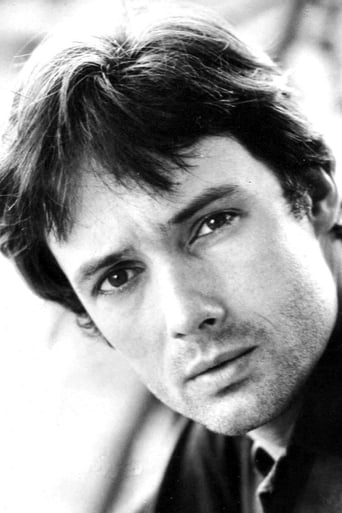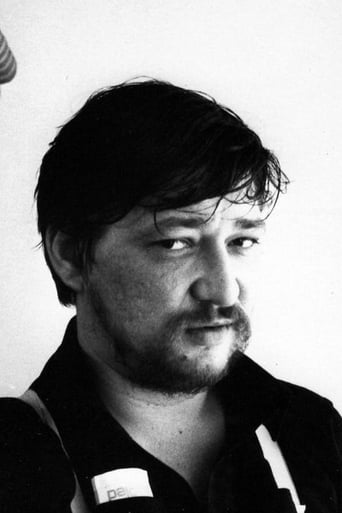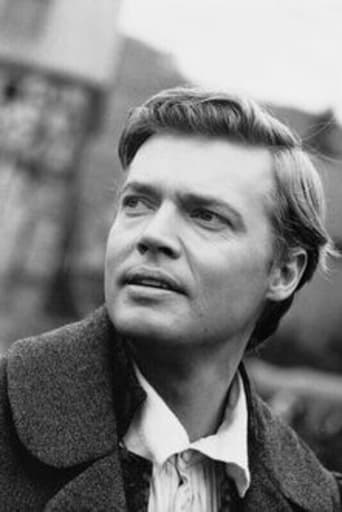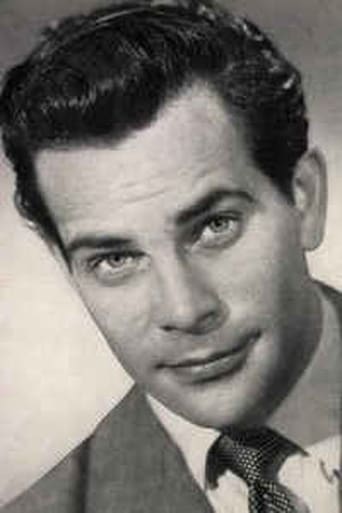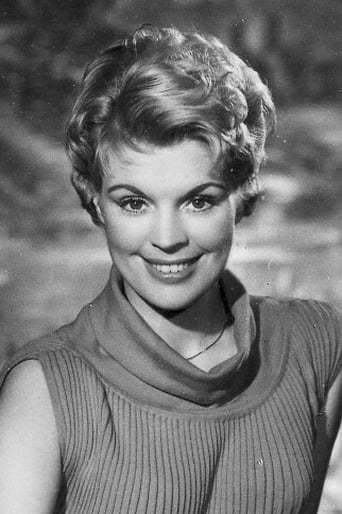ChicRawIdol
A brilliant film that helped define a genre
Stoutor
It's not great by any means, but it's a pretty good movie that didn't leave me filled with regret for investing time in it.
Kailansorac
Clever, believable, and super fun to watch. It totally has replay value.
Rexanne
It’s sentimental, ridiculously long and only occasionally funny
zipperaugo
Man has mastered the art of wielding Power. Show him an inch and he will become your slave, give him an inch and he will become your master. And you watch while he takes the whole nine yards around your hearth & eventually your gravestone as well. Fox and his Friends resonates many themes from Ali: Fear eats the Soul, Fassbinder's soothing, Melancholic masterwork. In 'Ali' the protagonists Emi and Eli literally dance into each other's arms whereas in Fox Eugen and Fox clash and spar with unabashed animal magnetism. Franz Bieberkopf a.k.a Fox is a variety show entertainer named The Speaking Head. He is an "abnormal on an Itinerant stage," as one line introduces us to him. His lover is arrested, the show is packed off and so is Fox, who is too polite and cowardly to remonstrate the Manager's unfairness. A latter line alludes to Fox being picked up from a "pubic urinal." 'Fox and Friends' is unapologetic and brutal in its portrayal of Sexual Politics and Power Equations. That it bases its premise on homosexuality is a moot point. What the mood of the film conveys or what the acting styles convey is a hopeless, recursive, silent Machinery laughing away at genuine peoples efforts to wriggle out. Fox's luck changes after an escapade he engineers. His singular belief in winning a lottery drives him to the deed though he is initially mugged after he legally borrows an amount. Fox is picked up by an aristocratic gent named Max. This brief scene is memorable for the three lightning edit cuts and freeze frames that show a rendezvous being established through codes and signals.Fox is introduced to Max's friends and is promptly attracted to and simultaneously repulsed by Eugen Thiess, a vain and ambitious bourgeois upstart. These are probably Fox's most liberating moments; when his street gab and penny tricks help him parry Eugen's sarcasm. But these defenses are soon exhausted when Fox's limitations loom large. He is ugly, poor, unschooled and "unskilled," as Eugen later points out. He is a homosexual from the streets. He will find no sympathy in a society that compels one to find power and to use it. His "proletariat potency," he knows is transient and viewed as a natural disposition to "boozing, scoffing and screwing." Eugen is an opportunistic entrepreneur who is quick to move in on Fox's vulnerability to acquire all the trappings that will win him society's approval.The editing here has amaelstrom like effect; events unspooling at a breathless pace, sharply contrasting the layers being peeled off Max's slight persona. Eugentactfully manipulates Fox as he climbs the social ladder, rescuing a family business and acquiring tasteful 'possessions.' Fox is useful for as long as he has the prize money. Eugen's family is respectful to Fox when in need but quickly change colors when tides change. Fassbinder casts himself as Franz and his interpretation of the role is pitch perfect. Peter Chatel is suitably stoic as Eugen, the scheming lover. I could sense an icy chillness each time Karlheinz Bohm appeared on screen. It was no small surprise when my rusty memory discovered that my only introduction to his work was in Michael Powell's icy, voyeuristic 'Peeping Tom.' Bohm as Max the antiques dealer infuses a chilling, menacing air to his character. Intermittent and lurking, he lands up at important intervals in Fox's journey. Michael Ballhaus' (also a Kubrick and Scorsese regular) camera-work has a languid dexterity that together with Fassbinder's frames create moments of lingering pathos. Filters and geometrical motifs accentuate the fractured personalities and hollowness of meaningless lives. The contributions of other characters lend a dramatic weight to the final act of betrayal – the stampede of the Herd. Two performances merit special mention; Hans Zander as the snide barman Springer and Peter Kern as the lecherous florist 'Fatty' Schmidt. The subject matter of the film created a huge controversy upon release. Fassbinder was accused of being homophobic despite being openly homosexual. There are some nude male frontal scenes that have never been depicted so openly since. Some frames depict young boys as Adonis like props, objectified for sexual predators or as mute adornments in depraved Saturnalia. In one telling scene Fox blocks out the reflection of a nude boy to prevent Eugen from looking on. In a polarized world Fox is easy meat, even for the weakest of predators. His body is the only commodity he can sell and as Eugen explains " Fox is not the kind of guy money can make rich."With 'Ali,' Fassbinder floored me. With 'Fox' he has me hooked for life. My personal rating- 7.8/10
Lechuguilla
In this film about an uncultured young gay man who wins the lottery, several themes play out, more or less concurrently: friends are easy to find when a person has money; intimate relationships between people of different social classes are not always wise; a fool and his money are soon parted; and perhaps most important of all ... one should always be true to one's self.The young man in question is "Fox" (Rainer Werner Fassbinder), a homely looking and chubby gay guy who suddenly finds himself surrounded by "friends", once they know he's got tons of money. These people are mostly gay. But they are also snobs, smug in their cultural knowledge, and convinced of their superiority to Fox. They put up with Fox, hoping they can latch on to some of his money. And Fox too often obliges them, as he is rather guileless and slow to catch on to their motives.The film's pace is slow and deliberate. The plot is a tad repetitive. And I'm not sure the story justifies a two-hour runtime. Color cinematography is rather stylized, and features vibrant colors. The film's tone alternates between whimsical and serious.I would describe "Fox And His Friends" as a German art house film. It is very low-key. Action is minimal. The emphasis is on characters, and the themes these interpersonal relationships generate. The ending is a bit heavy handed. But, as director too, Fassbinder certainly gets his message across.
hasosch
Franz Biberkopf (the figure that will play the main role in "Berlin Alexanderplatz", but appears already in earlier films, f.ex. in "The American Soldier") alias "Fox, the speaking head" is a showman on a fair-ground. When the police arrests his boss and a few of the dames, he is unemployed. Like Murnau did it in the "Last Laugh", also Fassbinder has pity with his figure that he plays himself and lets him win a big sum from lottery. Through the gay antique dealer Max, he meets Eugen and a few other representatives of what appears to be the "upper-crust homosexual circle" in town. Eugen's father owns a renowned printing plant which has gotten, however, in financial difficulties. Fox falls in love with Eugen, and Eugen persuades Fox to invest his lottery win into the plant of his parents, to buy a splendid flat with antique furniture of Max and to cloth themselves with the designer ware from Philip, Eugen's former boyfriend. It turns out that Fox, who has no idea about the customs of these high-society people, gets deeper and deeper into a maelstrom of treachery and betrayal. Eugen steels Fox' last money, let Fox put his signature under rotten contracts, so that, in the end, he has not gotten one penny from his win anymore. When he sells his car, he gets 8'000 D-marks. Fox ends in a subway-station where he poisons himself with a bottle of Valium 10 mg tablets. Street-boys are coming and searching his pants for the last D-marks. Max and Fox' former boss, passing by, make a detour, saying: "With that, I want to have to do nothing". You cannot just change the society in which you are born, as you cannot change your body. People, who nevertheless try to do that, go on a trip into the light which is either, like in the case of Hermann Hermann in "Despair", the insanity, or the suicide, like in the case of Fox.
Rogue-32
This is the first Fassbinder film I've seen, thanks to Francois Ozon, whose adaptation of Fassbinder's play Water Drops on Burning Rocks turned me on to him. After seeing Fox and His Friends, which stars Fassbinder, I most definitely want more. The story here is familiar - 'loser' gets to win big time and discovers how quickly people are willing - and able - to exploit him. It's the way the piece is written and performed that elevates it above predictability; there is a certain tongue-in-cheek quality to the proceedings that make it thoroughly captivating, through to the bitter end.


